Care while living with Autism
TweetAutism is a disorder which has no cure and which cannot be attributed to some condition in your life or some behaviour in your life. It is a genetic disorder and do not have any link to race, gender, social status, lifestyle, etc. The resources below will help you in learning more about Autism and empower you to deal with this disorders in Children and Adults.
Autism is a disorder that is usually first diagnosed in early childhood. The main signs and symptoms of autism involve communication, social interactions and repetitive behaviors.
Although ASD varies significantly in character and severity, it occurs in all ethnic and socioeconomic groups and affects every age group. Experts estimate that three to six children out of every 1,000 will have ASD. Males are four times more likely to have ASD than females.
Top Stories in Autism
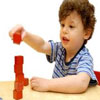 Autism Symptoms and Early Signs - As a parent, you never want to believe that your precious bundle has a problem. But when it comes to autism, catching it early–ideally by the age of eighteen. Autism Symptoms and Early Signs - As a parent, you never want to believe that your precious bundle has a problem. But when it comes to autism, catching it early–ideally by the age of eighteen. |
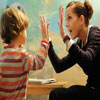 Helping Children with Autism - Helping Children with Autism. What support is available? What does the package include? How do I access funding? Helping Children with Autism - Helping Children with Autism. What support is available? What does the package include? How do I access funding? |
|
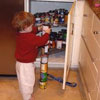 Repetitive Behavior - One of the core symptoms of autism is repetitive behaviors. What are these behaviors, and how can they be managed? Repetitive Behavior - One of the core symptoms of autism is repetitive behaviors. What are these behaviors, and how can they be managed? |
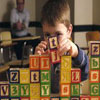 Autism Spectrum Disorders - General information about autism spectrum disorders: autism symptoms, diagnosis, treatment, and additional resources. Autism Spectrum Disorders - General information about autism spectrum disorders: autism symptoms, diagnosis, treatment, and additional resources. |
|
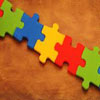 Autism Rating Scale - Autism Rating Scale - Childhood Autism Rating Scale (CARS) is a behavior rating scale intended to help diagnose autism. |
More on Autism
- Autism Spectrum Disorders
- Autism Symptoms and Early Signs
- Autism Rating Scale
- Helping Children with Autism
- Repetitive Behavior
- Autism in Early Years
- Autism Friendly Environment
- Bullying and Autism
- Living with Autism
- PDD - NOS
- Myths Facts and Statistics of Autism
What is Autism?
Autism spectrum disorder (ASD) widely known as Autism in common parlance, comprises of a wide range of neurological development disorders which are very complex in nature. They are often characterized by social troubles and paralysis, communication issues, and limited, repetitive, and typical patterns of behavior.
Autistic disorder, also called autism or ASD (classical), is the severest of the ASD, while there are some other conditions also present which are milder in nature, such as Asperger syndrome or childhood disintegrative disorder or pervasive developmental disorder (PDD NOS). This illness can in all ethnic and socioeconomic groups and can be present in almost every age group.
It is one of three recognized disorders in the autism spectrum (ASDs), the other two being Asperger syndrome, which lacks delays in cognitive development and language, and Pervasive Developmental Disorder-Not Otherwise Specified, which is diagnosed when the full set of criteria for autism or Asperger syndrome are not met.
Statistics around Autism or ASD
According to Centers for Disease Control and Prevention (CDC) - Morbidity and Mortality Weekly Report published in March 30, 2012) experts estimate that 1 out of every 88 children under the age of 8 will have an ASD . According to the same report male child is four times more vulnerable to ASD compared to female child.
In a country like India which has current population of more than a billion will have more than 2 million autistic persons across the country. The factors such as family income, education, and lifestyle does not affect the risk or occurance of autism.
Genetic factors seem to be important. For example, identical twins are much more likely than fraternal twins or siblings to both have autism. Similarly, language abnormalities are more common in relatives of autistic children. Chromosomal abnormalities and other nervous system (neurological) problems are also more common in families with autism.
Sign and Symptoms of Autism
The typical signs and symptoms of autism vary very much same as its effects in different individuals. Some autistic children only have mild symptoms or impairments, some others might have severe obstacles to overcome for leading a normal life. Generally speaking and hence putting up a scale to measure, every child affected by ASD or autism spectrum disorders (Autism, Aspergers or PDD) has problems to some or the other degree in the following areas:
- Communication - verbally and non-verbally both
- Relating and connecting to others and the surrounding world
- Flexibility in thoughts and behaviour
Care while living with Autistic Child
- Monitor your child’s development - Autism involves a variety of developmental delays, so what can be done is to keep a close check on how and when the child is experiencing the key social, behavioral, emotional, and cognitive milestones. This will help you identify the problem at the earliest time. They are actually concern areas rather than direct indicator of ASD related issues.
- Take action if you’re concerned - If the child is not catching up with the milestones for her age you can talk about this to your doctor and they will assist you in this concern. Please, please, do not hesitate.
- Wait-and-see approach is not good for this situation. In the case of ASD related troubles, waiting is the worst thing you can do. The risk of loosing precious time is very high since the earlier we start treatment, the better the chances are for effective results.
Development milestones as concern for Autism
The following delays in development actually raises the red flag and require an immediate evaluation by pediatrician.
- By 6 months: No big smiles or other expressions.
- By 9 months: No back-and-forth sharing of sounds and smiles
- By 12 months: Do not respond to name calls
- By 12 months: No guggling or babbling
- By 12 months: No copy gestures
- By 16 months: No words.
- By 24 months: No two-word phrases


Sometimes crying or laughing
are the only options left,
and laughing feels better right now.

Current Issue
 Self Help Leaflets Take the help of our self help leaflets or booklets. |
 The DG Magazine All about living with depression |
Know more on Autism
- Autism Spectrum Disorders
- Autism Symptoms and Early Signs
- Autism Rating Scale
- Helping Children with Autism
- Repetitive Behavior
- Autism
- Autism in Early Years
- Autism Friendly Environment
- Bullying and Autism
- Living with Autism
- PDD - NOS
- Myths Facts and Statistics of Autism
- A guide for adults
- Can Autism be prevented?
- Speech problem with autism
- Autism and Ageing
- Medication for autism
- Treatment
- History
- Diagnosis
- Conditions associated with autism
- Sibling
- Autism and Stress
- Facts and Statistics
- How to Choose the Right School for Your Child With ASD












